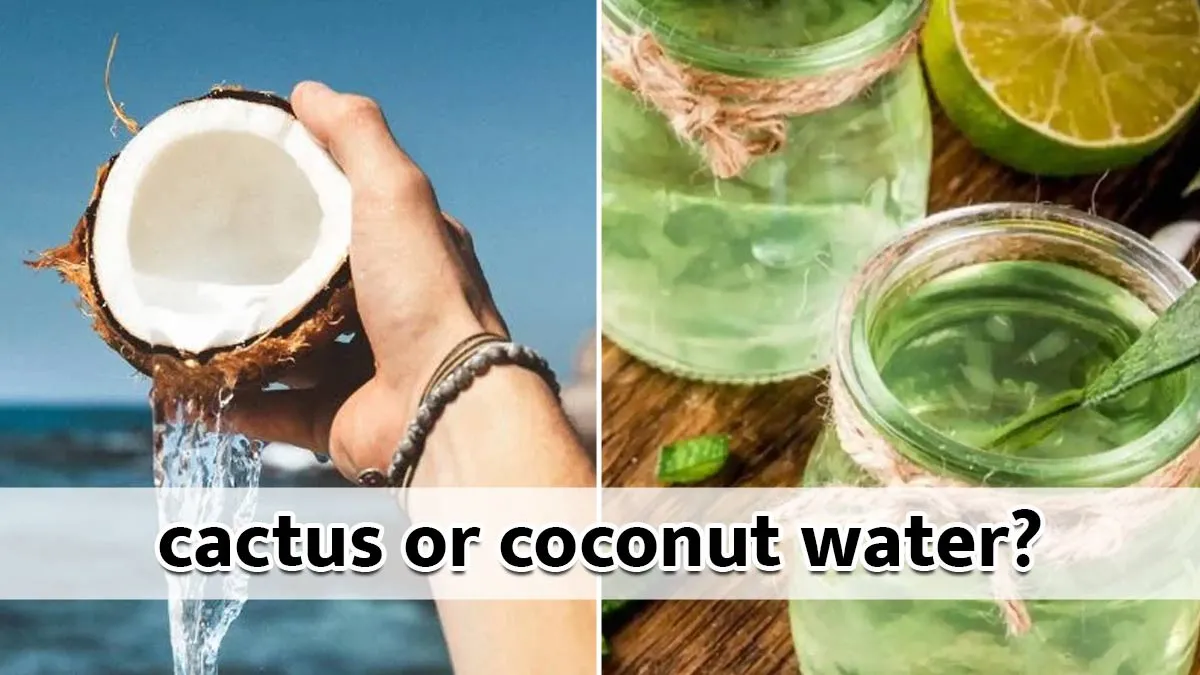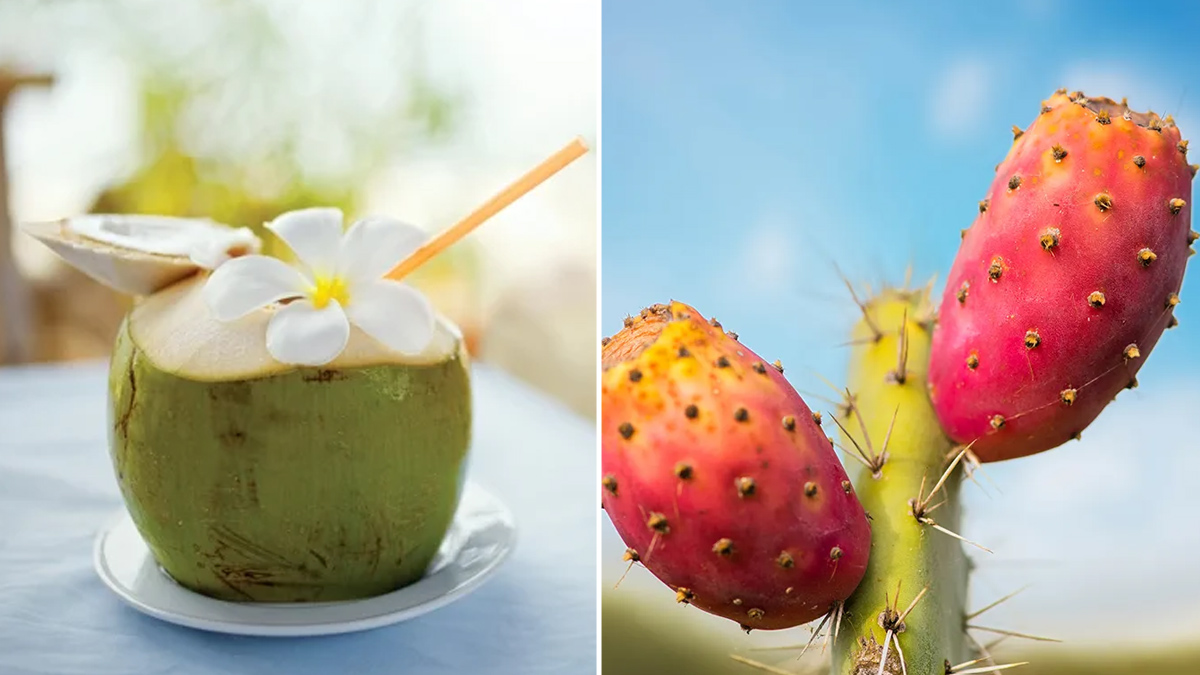
Let’s face it: your body is basically a fancy plant that forgot how to photosynthesise. Staying hydrated is no joke as our bodies are about 60% water, and without enough fluids, we quickly turn into cranky, sluggish versions of ourselves. But when it comes to choosing the perfect drink to quench your thirst, coconut water has long been the reigning champion. Lately, though, cactus water is making waves as the new health darling. Both promise hydration and health benefits, but which one truly deserves your attention? An expert shared the differences between these two natural waters to find out which one wins for hydration and overall health.
Table of Content:-
Coconut Water vs Cactus Water![coconut water or cactus water 1 - 2025-04-29T162750.926]()
Sakshi Singh, Nutritionist, Dietetic Place, Lucknow, breaks it down:
- Coconut Water: The clear liquid inside young green coconuts, mildly sweet and packed with electrolytes like potassium and magnesium. It’s been the OG post-workout drink for decades.
- Cactus Water: Made from prickly pear cactus, it’s lighter, slightly berry-like, and loaded with antioxidants like betalains and vitamin C.
At first glance, they seem similar: plant-based, hydrating, and low-calorie, but dig deeper, and their differences become crystal clear.
ALSO READ: Sip Your Way to Better Health: Top Benefits of Drinking Kerala Special 'Chukku Kaapi' Daily
Health Benefits: What’s Under the Hood?![coconut water 3 (98)]()
Coconut Water Perks
- Hydration Powerhouse: “Coconut water’s electrolytes make it ideal for rehydration after sweating,” says Singh. Its potassium levels rival bananas, helping maintain fluid balance and heart health.
- Heart Helper: Potassium naturally lowers blood pressure, reducing strain on your cardiovascular system.
- Digestive Ease: Soothes acid reflux and aids mild digestion issues, thanks to its alkaline nature.
Cactus Water Perks
- Inflammation Fighter: Betalains-the antioxidants giving prickly pear its pink hue-combat inflammation, aiding muscle recovery and chronic conditions.
- Blood Sugar Buddy: With half the sugar of coconut water, it’s safer for diabetics and those avoiding sugar spikes.
- Skin Saviour: Antioxidants like vitamin E reduce oxidative stress, promoting a radiant complexion.
Taste Test: Sipping Through the Differences![cactus water 2 - 2025-04-29T162755.477]()
- Coconut Water: Smooth, mildly sweet, with a nutty undertone. Think tropical vacation in a sip-unless you’re team “acquired taste.”
- Cactus Water: Crisp, light, and subtly fruity (imagine watermelon meets berry). Ideal for those who find coconut water too earthy.
“If you’re new to plant-based waters, start with cactus water as it has a lighter flavour and is more approachable,” suggests the expert.
ALSO READ: Can Eating 300 Grams of Chicken Shorten Lifespan? Here Is What An Expert Has To Say!
Which One Should You Choose?![water for hydration 4 (27)]()
Pick Coconut Water If You
- Need rapid rehydration after intense workouts or endurance sports.
- Crave a richer, slightly sweet taste.
- Want a natural source of potassium for heart health
Pick Cactus Water If You
- Prefer a low-sugar, low-calorie option (as little as 19 calories per cup!).
- They are focused on reducing inflammation or managing blood sugar.
- Enjoy a light, fruity flavour without the coconut aftertaste.
Final Verdict: It’s a Tie
While coconut water reigns supreme for post-sweat electrolyte replenishment, cactus water steals the spotlight with its antioxidant-rich, low-sugar profile. Your choice depends on your goals: coconut water for hydration, cactus water for health. Both cactus water and coconut water offer unique health benefits and hydration perks.
Coconut water is excellent for replenishing electrolytes after intense workouts, while cactus water shines with its antioxidant properties and lower sugar content. Your choice depends on your personal health goals and taste preferences. Whether you want a refreshing post-exercise boost or a gentle antioxidant-rich drink, incorporating either or both into your routine can support your body’s hydration and wellness.
Also watch this video
How we keep this article up to date:
We work with experts and keep a close eye on the latest in health and wellness. Whenever there is a new research or helpful information, we update our articles with accurate and useful advice.
Current Version

-1745924591940.jpg)

-1745924574938.jpg)